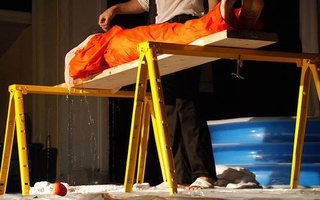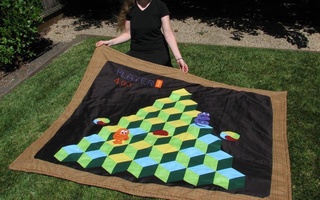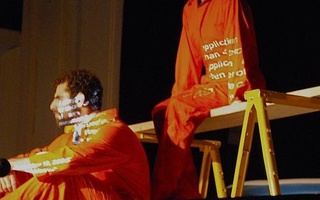And there was very little of a repressive element for them to feel a need to react to. So part of the shift towards the comedy of manners was due to the shift towards the home, which necessarily eliminated these fantastic--as in fantastical--torture devices.
THC: But it seems that now people are bringing very violent performances into their homes through the television.
AT: At the same time, however, the violence is staged in a public arena, and arenas tend to cross economic and even gender lines in a way that home performances don't. In some ways, WWF acts both ways: you watch it on TV but it's also in a public arena. And it even travels around so that it becomes a sort of court, a sort of "for the people" activity. If you remove it into a more private space--say, now it's going to be at the Kennedy Center--it's going to be quite different.
THC: So if you could predict the future of WWF based on your knowledge of trends of stage violence in the past, what would it be?
AT: These desires to watch something violent and to watch something that you know is fake but that pretends to be real at the same time, these desires seem to be natural.
But whether your society allows this to continue--not just legally but culturally--ebbs and flows naturally. There are times when its very popular and times when its completely unpopular, when we remove back to the comedy of manners. So stage violence in general is an ill-fated form of entertainment. It never just keeps going.
Read more in Arts
Life on the High-WireRecommended Articles
-
 A Tortured Affair
A Tortured Affair -
 New Courses, New You
New Courses, New You -
 A Tortured Affair
A Tortured Affair -
Atul Gawande Criticizes Supermax PrisonsSupermax prisons, which are designed to hold prisoners in prolonged and strict solitary confinement, are ineffective, expensive, and detrimental to mental health, surgeon and journalist Atul Gawande said during a speech at Harvard Law School yesterday.
-
Change We Can Believe In?Some people ask whether terrorists should have rights. But there is no way to tell who is a terrorist and who isn’t without some sort of fair process.
-
POSTCARD: In the Heart of DarknessIt is impossible to describe the feeling of listening to someone praise a man who was responsible for the torture and death of thousands of Chilean citizens during his brutal 17-year regime.













